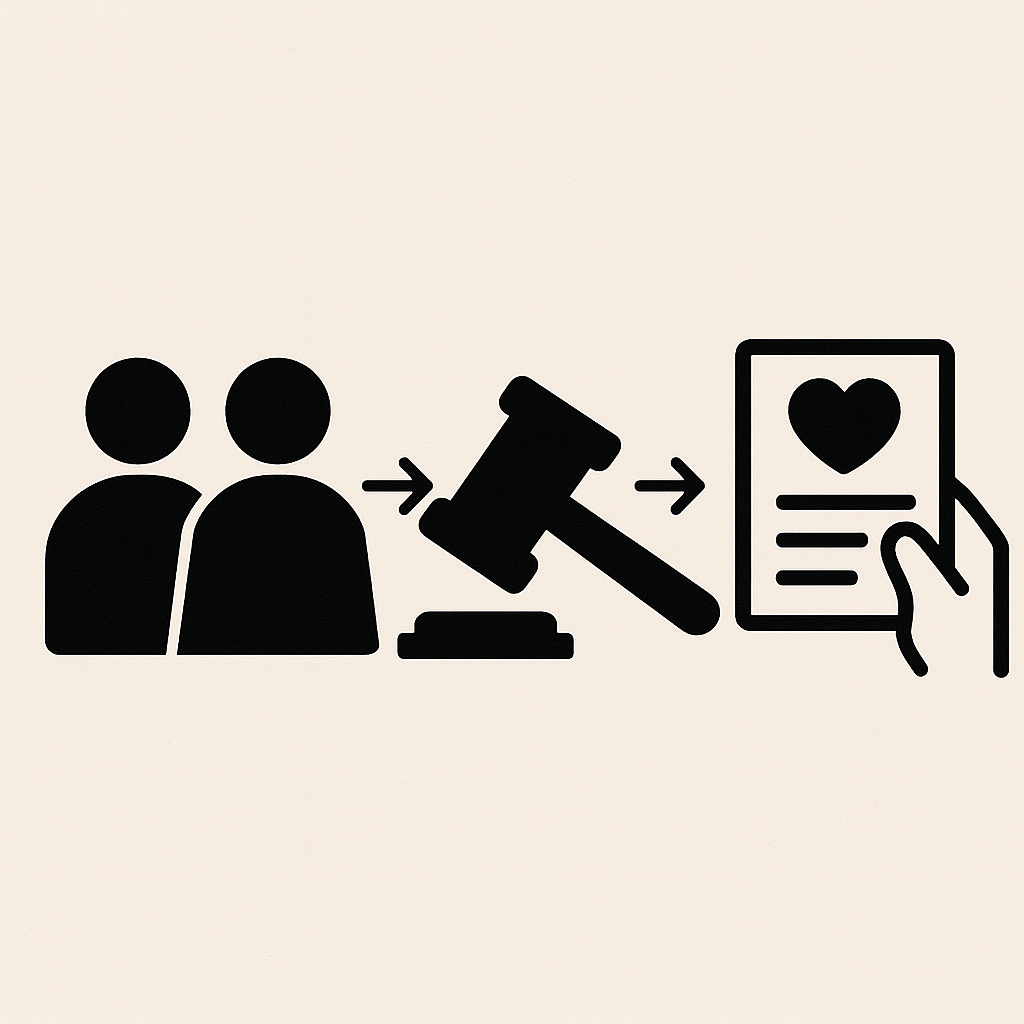Common Law Marriage in Utah Recognition & Proof Guide
Does Utah recognize common law marriage, and how do I prove it? A plain-English guide to criteria, evidence, petitions, and outcomes
Utah does recognize common law marriage but only when you prove very specific legal requirements. Unlike states with looser rules, Utah requires a court to validate your relationship before rights attach.
This page explains what the court looks for, the documents and testimony that help you prove it, and how to file the petition. Recognition can affect property, inheritance, alimony, medical decision-making, and survivor benefits.
Utah Law Explained walks you step by step so you know what to expect, what to gather, and which mistakes to avoid.
Recognition Criteria (What You Must Prove)
Utah does not automatically grant marriage rights just because you lived together. You must show the court that your relationship functioned as a marriage.
Capacity to Marry
Both partners were legally free to marry and met Utah’s basic requirements (for example, not already married; age of consent).
Cohabitation
You lived together as partners and shared responsibilities such as maintaining a household, paying bills, or raising children.
Mutual Agreement
Both of you genuinely agreed to be married and intended a marital relationship, not just dating or casual cohabitation.
Public Reputation
You held yourselves out as married to others (for example, “husband/wife” introductions, shared last name, joint taxes).
Each element must be proven with documents, testimony, or other credible evidence. Simply living together for years is not enough.
Evidence You Will Need
Courts want proof that your relationship functioned as a marriage across financial, legal, and social areas of life. One item alone is rarely enough; consistency across categories is key.
If a partner has passed away, gathering documents and witness statements is critical because it may be the only path to establish your rights to property or benefits.
How to Petition the Court
File the Petition
Notify the Other Party
Hearing Day
After Recognition
Property, Inheritance, Debts, and Alimony
Property Division
Once recognized, marital assets acquired during the relationship are divided under Utah’s equitable distribution rules.
Inheritance & Survivor Rights
A validated marriage protects the surviving spouse’s rights, including intestate succession when there is no will.
Debts & Obligations
Debts incurred during the marriage can be allocated between spouses, similar to any traditional marriage.
Alimony
If the relationship ends, a recognized spouse can request alimony based on Utah factors such as need, duration, and standard of living.
Need Help Applying This to Your Situation?
These cases are evidence-heavy and fact-specific. A short consult can help you avoid mistakes and delays.
Talk to a Utah AttorneyVideo & Social Learning Hub
YouTube Resources
Instagram Highlights
Key Takeaways
Utah recognizes common law marriage only by court order after you prove capacity, cohabitation, mutual agreement, and public reputation.
Build a consistent evidence pattern across finances, housing, benefits, public records, social proof, and written declarations.
Recognition triggers full marital rights and obligations, including property division, inheritance, debts, and possible alimony.
This page provides legal information, not legal advice. When in doubt, get counsel before you file.
Next Step
If you’re ready to proceed, start assembling documents and witnesses now. Organized proof makes your hearing smoother.
Book a Common-Law ConsultWe’ll help you assess your eligibility, organize evidence, and prepare for service and hearing.
